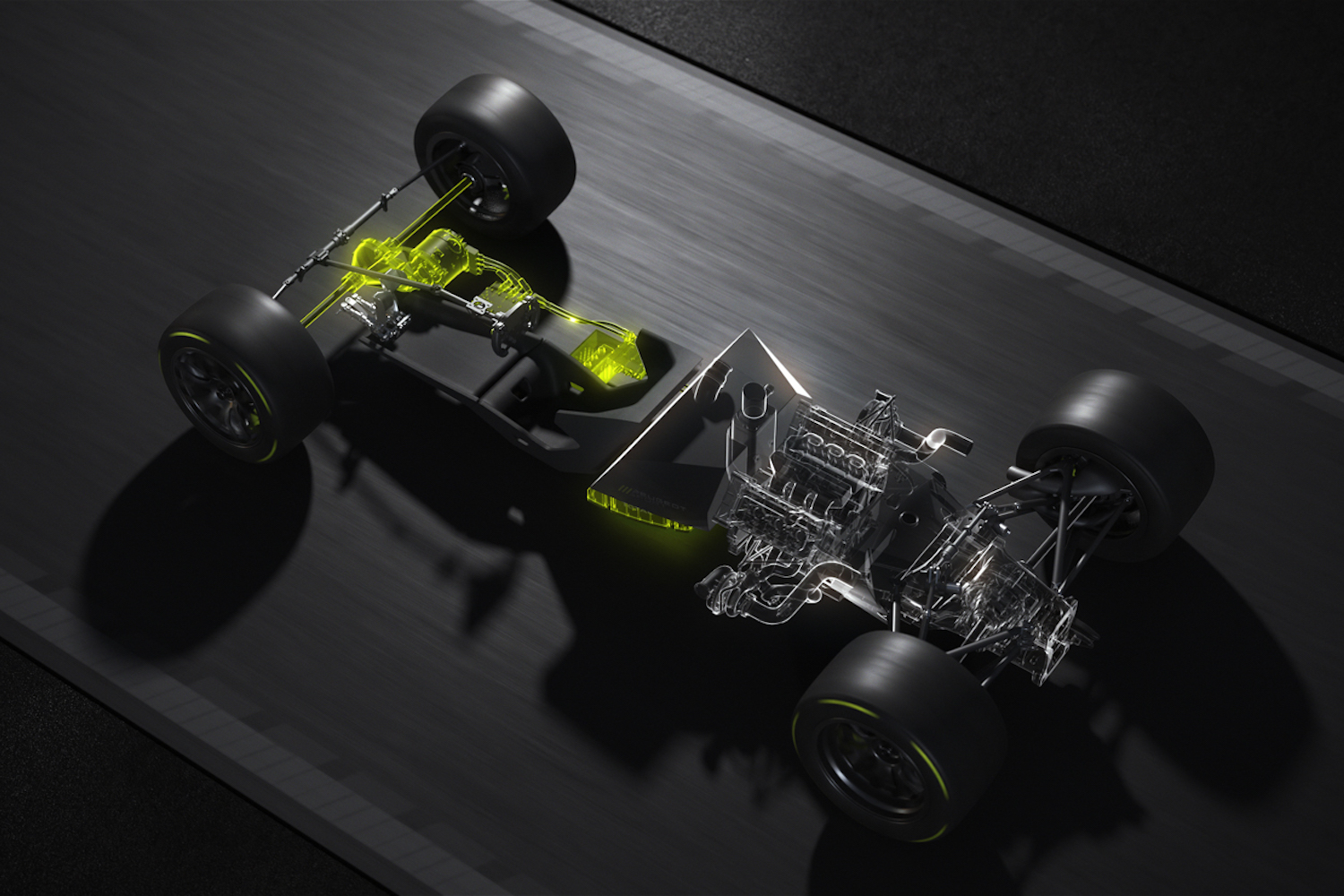Peugeot, which is returning to the Le Mans 24hrs after an absence of more than a decade, is starting to peel back the veil of secrecy surrounding its Le Man Hypercar (LMH) specification racer. So far, all we've known is that it was going to be a supercar, designed only for racing, with production-body styling and a hybrid engine co-developed with fuel and oil supplier Total.
V6 engine weighs just 165kg
Well, now we know a little more. The petrol half of the Le Mans racer's hybrid powertrain is a flyweight (just 165kg) 2.6-litre V6 engine, with twin turbos, that develops 680hp. Or, if you prefer, 500kW, the maximum allowable under the new regulations for the top-performance class at Le Mans. It'll drive the rear wheels all by itself.
That's going to be combined with a 272hp (200kW) electric motor, mounted at the front and driving the front wheels, fed by a light, compact battery. That battery has been jointly developed by Peugeot Sport and Saft, a part of the Total Group, which is presumably moving into battery technology as a hedge against dwindling petrol and diesel sales in the future. The battery gets its own carbon-fibre protection cell, and is mounted behind the driver and underneath the petrol tank. The combined system has been dubbed Hybrid4 500kW, drawing a direct line between Peugeot's road-going hybrids and the race car. "The main parameter will be to optimise how the energy stored in the battery is used," explains Kamen Nechev, Saft's Chief Technical Officer. "To achieve this, you need an extremely short charge-time combined with high-capacity storage cells to form a package that enables maximum power to be delivered as rapidly as possible. The most competitive solution resides in the management of charge optimisation and the amount of power available in real time."
Complex rules
The way the electric and petrol parts of the powertrain work is not just a matter of combining both power sources. In fact, there's a complex web of rules over how Peugeot and Total will be able to deploy the V6 and the batteries in the 2022 Le Mans 24hrs, which is when we should see the car racing for the first time.
For example, while it's capable of 680hp, for most of the time, under full throttle, the engine will actually produce a mere 408hp, while the electric motor produces its maximum 272hp. When the battery is drained, such as at the end of one of Le Mans' long straights, the engine is then free to develop its maximum power once again, and can even over-boost a little to hit a maximum 700hp at the end of a straight. While the race car will actually be a plug-in hybrid, with its battery fully-charged up before the start of any race, the rules say that it must be able to pull away under petrol power (so that you can't get away with using a clutch that's too light, small, and delicate) and that electric assistance can't kick in until the speed rises above 120km/h. So, in other words, Peugeot Sport's new race car will have four-wheel drive, but not all the time. The electronics needed to marshal all this together frankly boggle the mind... Special sensors will be fitted to the car to ensure that Peugeot (or anyone else running to LMH rules) isn't cheating on how the power is deployed.
Collaboration between road and race
All of that power and performance will be parcelled out by a seven-speed sequential paddle shift gearbox and a new brake-by-wire system.
According to Peugeot Sport, there's close collaboration between the engineers working on this new LMH hypercar and Peugeot's electric road car division, so there's an opportunity for technology to transfer from track to road and back again. Indeed, some of the tech from the Le Mans car is already earmarked for the upcoming 508 Peugeot Sport Engineered model, which will have a 360hp high-performance plug-in hybrid powertrain.
"The architecture of the Peugeot Hybrid4 500kW powertrain is the result of a highly-detailed brief shaped by the new FIA WEC regulations," notes François Coudrain, Peugeot Sport's WEC Programme Powertrain Director. "We initially considered a single turbo, but that would have prevented us from achieving our engine's centre of gravity target. A twin-turbo V6 block offers the best trade-off between technology, weight, packaging of the engine's ancillaries, reliability and performance.
"The motor generator unit will be equipped with a lightweight, high-efficiency single-speed transmission and a latest-generation inverter to transfer battery power to the motor. It will have the capacity to use all the energy available in the battery instantly thanks to the powertrain's energy management system strategies. PSA Motorsport's experience of the WRC and Formula E will contribute to the development of the software employed to manage the computer and energy systems - braking energy recovery, power under acceleration, anti-lag system, reduced fuel-consumption."








